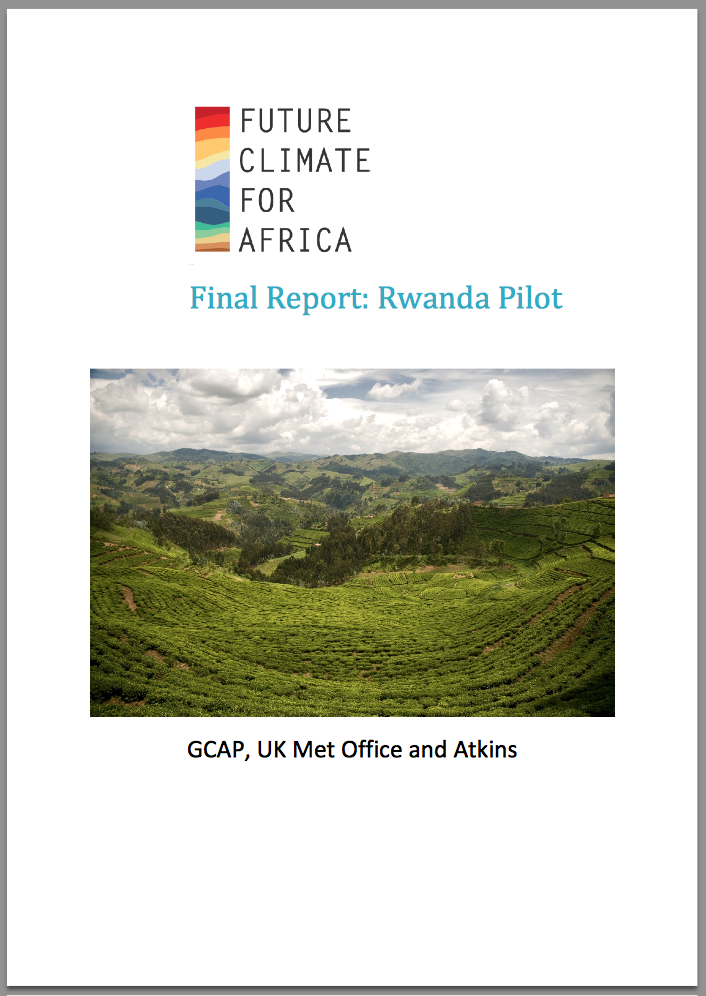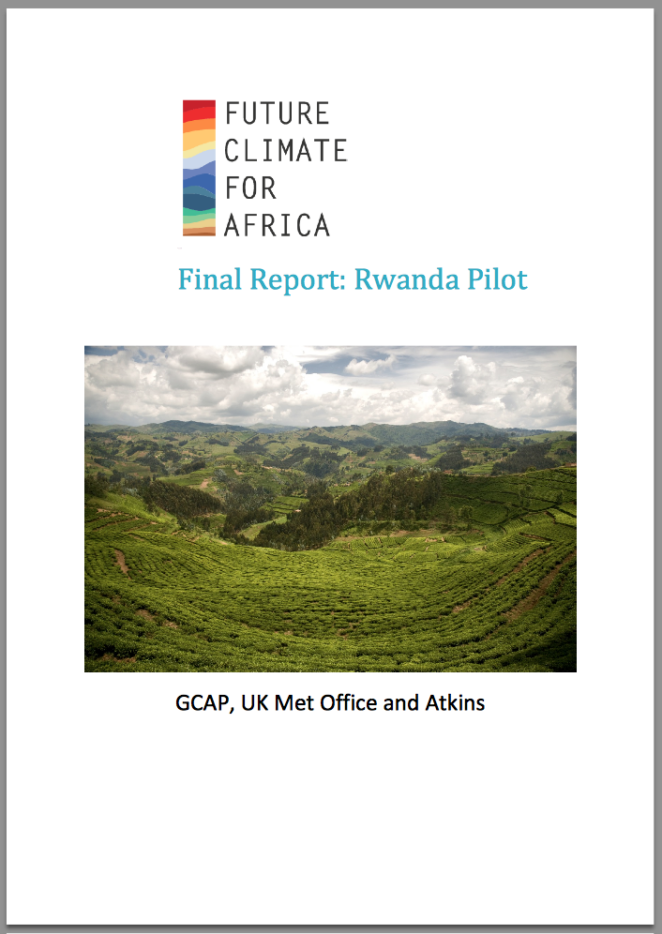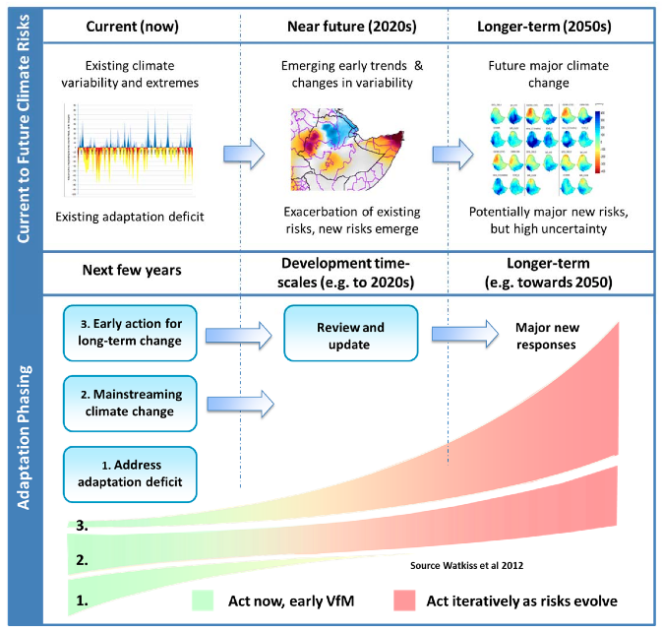Case-study /
FCFA Pilot: Final Report- Rwanda Pilot


FCFA Rwanda Pilot Study: Summary
The Rwanda FCFA case study was undertaken by the Global Climate Adaptation Partnerships (GCAP), working with the UK Met Office and Atkins. The case study undertook four major activities:
-
A literature review was undertaken to frame the context for adaptation applications. This identified relevant decisions and support methods, particularly for medium to long‐term decisions.
-
A country background and policy assessment was undertaken to understand the adaptation context in Rwanda. This included analysis of development plans, the DFID office portfolio, current vulnerability, future climate projections, key future climate risks, and existing climate change / adaptation activities.
-
An initial country visit was undertaken and a large number of bi‐lateral interviews (25) were held with key stakeholders, to understand the decision context and end‐use applications for existing and potential adaptation activities, and to explore the current/future use of climate information.
-
A number of practical and policy relevant medium‐long term adaptation case studies were selected and assessed in detail, considering the problem area, decision processes, current use of climate information, and the opportunities for medium‐ to long‐term policy making. New CMIP5 climate projection information (focusing on relevant case study metrics) was developed, and a review of climate‐hydrological information needs was made. The case studies were discussed in a second country visit / interviews.

An iterative climate risk management framework for adaptation. Watkiss et al 2014. Click to enlarge
End‐User Discussion Output and Initial Findings
A country visit was undertaken in June. The aim was to identify and explore potential end‐use applications, including a mix of policy applications/themes that covered strategic policy, sector development mainstreaming, climate risk screening, and project appraisal, across a range of sectors. A series of bi‐lateral interviews were held with Rwanda Environmental Management Authority (REMA); Rwanda Meteorological Agency; Ministry of Agriculture (MINIAGRI); Ministry of Infrastructure; Ministry of Natural Resources; Ministry of Disaster Management and Refugee Affairs; Ministry of Local Development; DFID office staff; other development partners (World Bank, KfW, European Union, UNDP, GIZ, GGGi) and other organisations including World Food Programme, Access to Finance Rwanda (agricultural insurance) and FEWSNET. For each of the interviews, the current decision context and the use of climate information was discussed, along with future risks and adaptation plans, then the future end‐use decisions and the use/need for climate information was explored using the FCFA pilot questions. To complement these interviews, the relevant documents for each end‐use application were reviewed to provide complementary information on the decision context, adaptation, and the existing use of climate information. The analysis identified a number of practical and relevant end‐user applications and decision contexts for adaptation, including:
-
Mainstreaming of climate change into DFID office programmes;
-
Business case development in DFID ICF projects;
-
National climate change action plans (National Adaptation Plan development);
-
National climate change project appraisal (e.g. applications (to the Climate Fund);
-
Mainstreaming of climate change into national sector development plans (five year plans), as well as master plans and long‐term strategy;
-
Infrastructure climate risk screening and appraisal;
